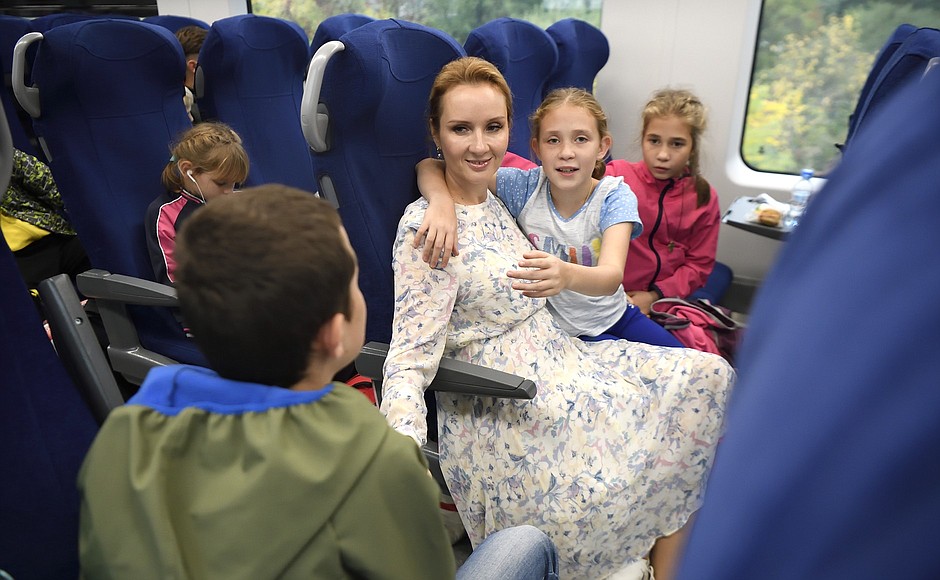Ukrainian children in Russia: figures much higher than those declared by Moscow
The Važnye Istorii website has reliably traced a figure of 1184 children who arrived in Russia "without legal representatives from the Donbass territory." In many regions, minors from occupied and "annexed" territories are now considered Russian citizens, without marking them on any registers. Yet, several regional archives show increases in foster care, adoption and guardianship without obvious explanation.
Moscow (AsiaNews) - According to an investigation by the website Važnye Istorii, "Important Stories," records of more than a thousand children undergoing "preventive treatment" in Russia can be found with certainty.
The figure is three times higher than those publicly admitted by the Russian authorities, even if they are not all of the nearly 20,000 allegedly deported according to Ukrainian sources.
Children's Guarantor Maria L'vova-Belova, who a few days ago met with Cardinal Zuppi sent by Pope Francis, personally brought a large group of orphaned children from the occupied Donetsk region to Russia's Nizhny Novgorod region to be placed with local families (pictured).
By the end of 2022, Belova had claimed to have placed 380 children in families, and has repeated the same figure to date. In contrast, the minutes of the Rostov regional government's activities, according to the investigation, show 1184 children who arrived "without legal representatives from the territory of the Donbass and Ukraine." From this formula it is not entirely clear the status given to these children, who may be orphans who lived in special facilities, or who lost their parents during the fighting.
Nor can it be ascertained how many actually remained in guardianship families, and for what periods; under Russian law, the "temporary guardian" is referred to for a period varying from six to eight months, during which time a decision can be made to adopt them, or transfer them to another destination, which may be state orphanages or private facilities, such as those cared for by the Orthodox Church. There was a Catholic hostel for children in Moscow, entrusted to the religious of the Opera Don Calabria, but they were forced to leave the country years ago.
Some of the Ukrainian children may have been deported along with other relatives, grandmothers or aunts, while the parents remained in the occupied territories. Often they were simply taken to Russia as kindergarten or elementary school pupils, to "allow the education process to continue," and entrusted to educational institutions, without taking time to prepare the appropriate documents. Regional records are not all accessible and complete, and the transfers were often disguised under other headings of children's activities. The Ministry of Education in Rostov refused to speak to reporters.
Važnye Istorii's investigation, however, reconstructed the itinerary of many of the deported children, spread across 23 regions, from Moscow and surrounding areas to Nizhny Novgorod, Russia's third largest city by population, Leningrad-St. Petersburg, and even others in northern European Russia, such as Kostroma or Novgorod Veliky.
Here the children are reportedly now permanently placed in the care of the families who have taken them in, and only sporadically do stories related to them appear in the official media, such as that of a woman from Voronež who has taken in six from the Donbass into her home, or another from the same city, to whom a little girl with AIDS is entrusted.
L'vova-Belova herself has expressed her agency's intention to place about a thousand minors from the Donbass, in addition to the 380 repeated from a year ago, and it can be assumed from the data gathered so far that these figures are to be multiplied at least by three or more.
Especially since children from the four occupied and "annexed" regions are now regarded as Russian citizens, and thus no longer listed on any transfer register. Yet, several regional records show increases in foster care, adoption and guardianship without an obvious explanation.
The Children's Guarantor informed that only 16 children had been reunited with their parents by last March, and international institutions, first and foremost the Holy See, are trying to work on this very issue, pushing to restore family unifications.
07/02/2019 17:28







.png)










